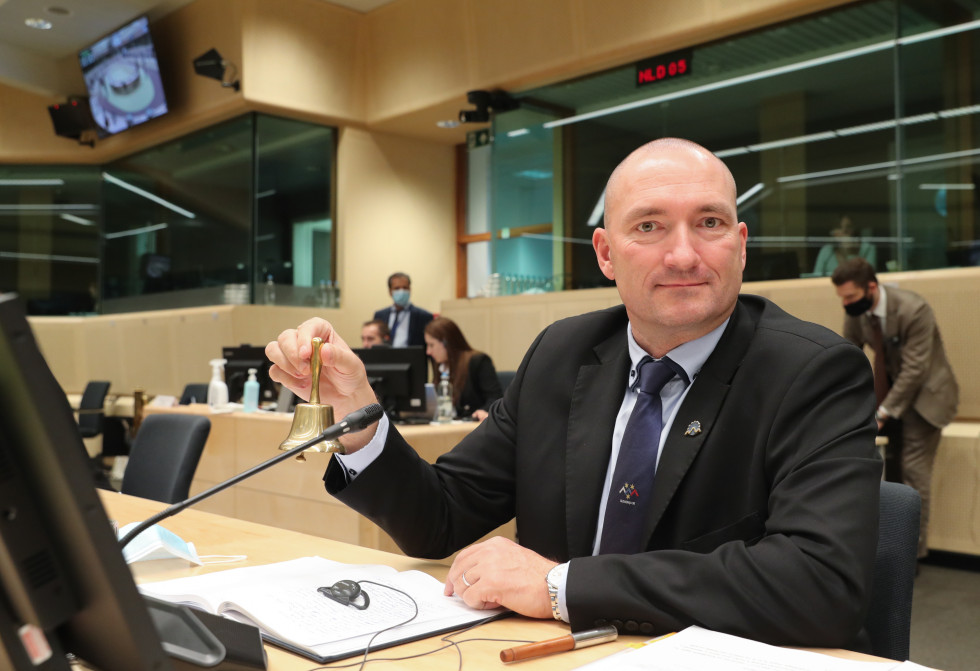By: UKOM
Yesterday, the EU ministers responsible for agriculture and fisheries met in Brussels. They focused on forests and their importance in the transition to a green, climate-neutral and competitive circular bioeconomy. They also addressed the findings from the EU Pollinator Week in September and took note of the situation on the agricultural markets. They also discussed the management of large carnivores and the state of play in the negotiations on fishing opportunities with the United Kingdom.
The agriculture ministers approved the conclusions on the new EU Forest Strategy for 2030, sending a clear political message on an issue as important for the future as the role and importance of forests in the EU and globally. The ministers agreed on the need for forests to contribute more to the European Green Deal and global goals such as the 2030 Agenda. They emphasised that forests play an integral role in ensuring human and animal health and a healthy natural environment. They stressed the importance of fruitful dialogue between EU member states, the Commission, forest owners, other stakeholders and civil society. The Council stressed the importance of a balance between environmental, social and economic aspects of sustainable forest management and that the diversity of forests and the established methods of forest management in different member states and regions should be respected and maintained. The Council conclusions also underline the fact that forests are becoming a cross-cutting issue in many EU policies and that the EU is attaching increasing importance to the contribution of forests to the European Green Deal, the global objectives on forest protection and new forest-related challenges.
The chair, Minister Jože Podgoršek, said: “Slovenia as one of the most forested countries in the world has always been aware of the importance of sustainable and multifunctional forest management. Thus, I am very pleased that conclusions on such important issues have been adopted during the Slovenian Presidency. Most of the conclusions reflect the need for cooperation of all stakeholders in establishing a balanced approach to forests. This is the only way to successfully take on the challenges posed by our forests and, at the same time, protect the communities living off of forest resources.”
On agriculture, the ministers took note of the challenges facing the member states relating to the current market situation. The situation in the pork sector is especially concerning. “Inflationary pressures have increased in the last year, while energy, raw material, fertilisers and freight prices have also substantially increased. The market developments of the said sectors and their influence on the agricultural and food sector will therefore have to be closely monitored,” said Minister Podgoršek.
The Presidency also presented the key messages and recommendations of the EU Pollinator Week, which took place at the end of September. Regarding ecosystem services, the key and indirect roles of pollinators, such as pest control, maintaining soil and water quality and contributing to the landscape aesthetics were highlighted. “We need to be acutely aware that pollinators ensure the quality of our lives, agriculture and our future in general.” Therefore, the Presidency is working to ensure that member states include measures in their CAP strategic plans that are aimed at preserving pollinator diversity and numbers.
The ministers also took note of the report of the Slovak delegation on the handling of large carnivores and of the analysis of the possibilities for harmonisation of their monitoring in the EU member states. The Commission updated the ministers on progress made in consultations on fishing opportunities for stocks shared with the United Kingdom for 2022. The Slovenian Presidency is pushing for an agreement with the United Kingdom before the Agriculture and Fisheries Council meeting in December.

